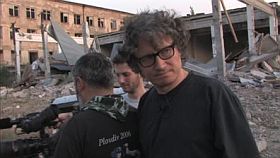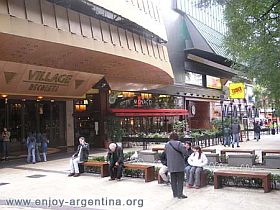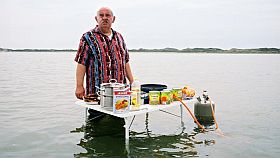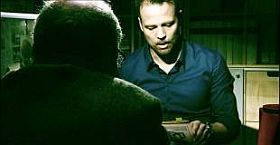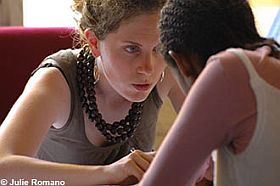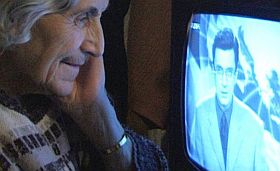


MK2 + la Cinematheque
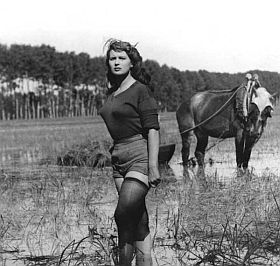
Our Paris correspondent, Sara Thelle, has already written about Film Socialisme by Jean Luc Godard, and her article was one of the reasons that I, with great expectations and huge pleasure, went to see the film in MK2 Beaubourg, where it still runs at one of those fine late morning screenings, once per week, that is practised by the chain of cinemas of Marin Karmitz (MK). My friend and I left the cinema in complete agreement on the quality and playfulness of the latest work of the old man, who has not stopped challenging the film language in a film that has many layers and reflections, and is serious and full of humour at the same time.
At such a good mood we left the Beaubourg quartier heading for Bercy, to la Cinematheque Francaise, to watch the exhibition “Brune et Blonde” that has just opened and runs in the French capital until January 6 2011. Film history, the stars and their hair, clips from films back to the silent movie, brilliantly edited and displayed, supplemented by paintings by, among others, Paul Delvaux, and photos by, among others, Man Ray. But the main attraction was, without any doubt, the clip scenes, where many evoked wonderful memories like Silvana Mangano in the classic “Rice Girl” (PHOTO), in her sensual, seducing dance. Brigitte Bardot, Catherine Deneuve, her sister Francoise Dorleac, Ingrid Bergman, Julia Andrews, Penelope Cruz… For the exhibition a series of short films had been made; the one of Abbas Kiarostami with a little girl, who is asked to let her hair be cut, she thinks about it, hesitates for a moment, but says no, and hesitates again when she is asked to cut the hair of her friend – a master’s work, go and watch it, well go and take an hour or two in the exhibition to have your film history evoked, open for blonds and brunettes.
